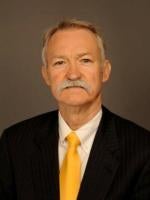With the election of Donald Trump as president and the return of Republicans to both houses of Congress, the potential for significant regulatory relief for the banking industry has never been greater. Because President-elect Trump did not make financial services reform a major issue during the campaign, other than the insertion into the Republican Platform of a plan to reinstate the Glass-Steagall Act's separation of commercial and investment banking activity and a general call to repeal the Dodd-Frank Act, it is more likely that Congress will be the main source of regulatory relief for the banking industry, although it seems certain that President-elect Trump will make several reform-minded appointments to leadership positions in the FDIC, OCC, and SEC.
In Congress, the most likely vehicle will be House Financial Services (HFS) Committee Chairman Jeb Hensarling’s (R-TX) Financial CHOICE Act, which would exempt banks that maintain 10 percent leverage capital from many rules including the CCAR stress test, size limits, living-will requirements, and the Basel III and Volcker rules. In addition, it would replace the Orderly Liquidation Authority with an expedited bankruptcy process, and amend the Consumer Financial Protection Bureau (CFPB) to make it a five-member commission and subject it to the annual Congressional appropriations process. It also would eliminate the CFPB’s authority to declare practices abusive.
The Trump transition team includes few recognizable Washington-based financial services operatives, though his campaign finance chairman Steven Mnuchin is a former Goldman Sachs executive. As the probable lead Congressional contact for the Trump administration, Vice President-elect Mike Pence is likely to have a major impact on legislative policy, and his close friendship with House Republicans, especially Rep. Hensarling, will elevate the CHOICE Act to an even more prominent place in the financial services policy agenda.
Both Mnuchin and Hensarling are rumored to be possible nominees for Secretary of the Treasury. Mnuchin has been closer to the day-to-day transition team activities, but the choice is not yet clear. Hensarling has a well-known policy agenda. Mnuchin is somewhat less well-known in Washington, and his Goldman Sachs experience is most often cited as his financial background. Though it is less discussed, he also organized the acquisition of IndyMac after it failed, at very favorable terms subsidized by the Federal Deposit Insurance Corporation (FDIC), and made $1.6 billion in less than a year. That institution was renamed OneWest and later sold to CIT.
Signals from the Trump transition team are somewhat mixed, but seem to indicate a willingness to work with the Republican majorities in Congress to achieve his priorities. The appointment of Reince Priebus as chief of staff is an unambiguous gesture, not toward the Republican establishment as much as toward Congress. Priebus and Vice President-elect Pence are both close to House Speaker Paul Ryan, and former Trump Campaign Manager Steve Bannon as Trump’s chief of staff would have signaled serious conflict. Bannon has been a consistent, harsh, and personal critic of members of Congress with whom he disagrees, and it would have made it difficult to craft a working relationship.
President Trump will likely attempt to fire and replace CFPB Director Richard Cordray very early in 2017. He will probably also try to end the appeal of the recent PHH Corp. court decision in the U.S. Court of Appeals for the D.C. Circuit which provided the legal authority for that firing. Whether the president can prevent that is an important legal question. There have been some discussions in D.C. think-tank circles trying to develop a theory under which the new president could immediately fire Cordray. This will be an early indicator of how aggressive the new administration will be on financial services issues.
While he probably will not immediately remove incumbents, the Comptroller of the Currency and the chairman of the Federal Deposit Insurance Corporation will be eventually replaced when their terms end. Comptroller Thomas Curry’s term ends in March 2017, and FDIC Chairman Martin Gruenberg’s term ends in November 2017. There is also a vacancy in the Federal Reserve vice chairman for supervision position. President Trump will likely move quickly on this nomination. These appointments will have very consequential impacts on examination and compliance issues for banks.
One major question is what the Obama administration will do regarding the issuance of rules that are currently in the pipeline. Many speculate on a significant number of “midnight rules” being issued, but the Congressional Review Act (CRA) may reduce the likelihood of such rules. The CRA allows Congress to disapprove any rule for up to 60 “session days” after it is issued. Given the Congressional calendar, that means rules issued back to about May 2016 will be subject to review. The CRA vote is not subject to filibuster, so Democrats would not be able to prevent a vote on a CRA bill. It is also not subject to judicial review.
Some have speculated Congress may craft CRA legislation with a significant number of rules and disapprove all at once. In any event, rules viewed as especially egregious may be disapproved one by one. A serious complication in using the CRA is that, once disapproved, a rule cannot be reissued "in substantially the same form" unless authorized by subsequent law. Thus, it will be somewhat problematic to disapprove complex rules with only a few provisions that are objectionable to the majority.
Lame Duck Session
The House leadership elections in the Republican Conference were held on Tuesday, November 15, and Paul Ryan and the rest of the current Republican leadership were reelected.
The Republican Steering Committee in the House meets after Thanksgiving to decide committee chairs. Committee assignments will likely occur following leadership elections in the full House in January.
The current FY 2017 Continuing Resolution (CR), which extended funding for 11 of the 12 annual appropriations bills, expires Friday, December 9, 2016. The FY 2017 Military Construction/VA & Related Agencies Appropriations bill was approved as part of the first FY 2017 CR in the fall.
Appropriations Committee Chairman Hal Rogers (R-KY) issued a statement last week indicating there will be a CR through March 31, 2017. This will likely be followed by an Omnibus bill after the inauguration.
115th Congress Agenda
Republicans are almost certain to recognize that they must display real and substantive progress on the “change” that was promised in the campaign. That will dictate a very busy first 100 days with long weeks in session for Congress.
The key piece of legislation potentially impacting the financial services industry is Dodd-Frank Act repeal or reform, probably through some variant of the CHOICE Act.
On the regulatory front, one issue that will be important early in the next year is the October 19 joint advance notice of proposed rulemaking issued by the Board of Governors of the Federal Reserve, the Comptroller of the Currency, and the FDIC. This is the second indication in as many months that regulators are preparing to intensify regulatory oversight of the financial service industry's management and protection of the vast quantities of electronic data at the core of industry operations. It will be complicated by the potential replacement of Comptroller Thomas Curry in March 2017 as the agencies’ rule is being developed.
The Department of Labor Fiduciary Rule will also probably be a target for change. Even though legislative action will be required to change the fundamental basis of the Fiduciary Rule, the new president will be able to appoint a secretary of labor who can delay implementation and rewrite the rule in a form more acceptable to the financial advisor community.
The National Flood Insurance Program authorization expires in June 2017. The HFS Committee has developed a proposal, and a discussion draft is expected to be released in December. Regardless of whether Rep. Hensarling remains as HFS Committee Chairman, Rep. Blaine Luetkemeyer (R-MO) is likely to be the lead on this legislation.
Committee Membership Changes
The full Senate membership prior to November 8 was 54 Republicans, 44 Democrats, and two Independents.
Following the November 8 elections, there will be 51 Republicans, 46 Democrats, and two Independents.
Sens. Mark Kirk (R-IL) and Kelly Ayotte (R-NH) lost and will be replaced by Democrats. There will be a December 10 runoff in Louisiana to replace retiring Sen. David Vitter (R-LA). Currently, the Republican candidate for Senate, State Treasurer John Kennedy (R-LA), is in the lead. In that case, the Republicans will have a 52-48 seat Senate majority.
Senate Banking Committee
The Senate Banking Committee ratio is not likely to change in the 115th Congress, and membership will likely remain at 12 Republicans and 10 Democrats.
Chairman Richard Shelby (R-AL) is term-limited and Sen. Mike Crapo (R-ID) will likely be the new chairman, though Sen. Shelby will remain a very influential member of the committee.
There will be two committee vacancies from the November 8 defeat of Sen. Kirk and retirement of Sen. Vitter.
The Democratic lineup on the Senate Banking Committee will remain unchanged.
House Financial Services Committee
Prior to November 8, the membership ratio on the HFS Committee was 34 Republicans and 26 Democrats.
The HFS Committee ratio is not likely to change in the 115th Congress, and membership will likely remain 34 Republicans and 26 Democrats.
Chairman Hensarling has two years left before he is term-limited. Ranking member Rep. Maxine Waters (D-CA) will remain in that position.
Post-November 8, Rep. Randy Neugebauer (R-TX) is retiring and Rep. Scott Garrett (R-NJ) was defeated. These developments open up the Financial Institutions and Consumer Credit Subcommittee and Capital Markets Subcommittee chairmanships.
Rep. Luetkemeyer is widely thought to be interested in the FI Subcommittee chair, as are some others. If Luetkemeyer is successful, that will open his chairmanship of the Housing and Insurance Subcommittee. Thus, three of the five subcommittees will probably have new chairpersons.
Chairman Hensarling has conducted a very structured process for selecting his recommendations for subcommittee chairs in the past, including interviewing all those who want to be considered. He will likely follow that pattern again, and not make his choices known immediately. He will send his recommendations to the Republican Steering Committee, which will act after Thanksgiving.
The makeup of the HFS Committee is dependent on what happens regarding the possible nomination of Rep. Hensarling as Secretary of the Treasury. If he is nominated, there will be a competition involving at least the following for chair of the full Committee:
-
Patrick McHenry (R-NC)
-
Ed Royce (R-CA)
-
Frank Lucas (R-OK)
-
Blaine Luetkemeyer (R-MO)
Until the Treasury nomination is determined, there is little point in speculation on this chairmanship.




 i
i


